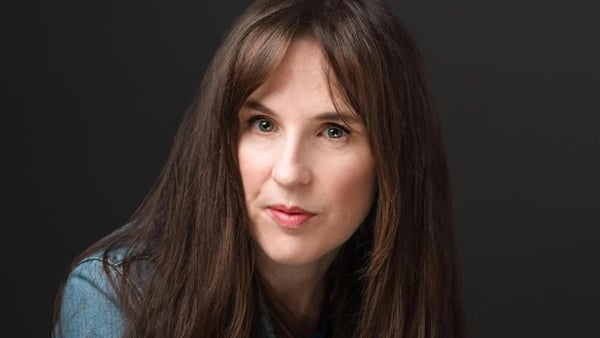The RTÉ Short Story Competition 2024 in honour of Francis MacManus is back and is now open for entries.
Below, one of this year's returning judges, acclaimed novelist Neil Hegarty, explores what he likes in a good short story, and why saying less on the page can mean so much more.
I love the plasticity of the short story. Short or not so short, dense or spare, traditional, fragmented, formally innovative, responsive: the short story form adapts, and morphs, and moves with the times – it does what the writer, and the reader, and the world within which it exists, need it to do. It continues to speak quietly, persuasively to us as our lives change, as the world changes.
It even embraces technology: recently I reread Bernie McGill’s short story The Snagging List, in the Edge Hill Prize-winning collection This Train is For – and admired again how the story is written as an exchange of text messages over a period of time, building layers of meaning, understanding, and characterisation into (of course) the fewest possible words. ‘Yep,’ says one texter to another. ‘Are you going to tell me about him?’ The story moves with miraculous spareness through the phases of life, and the effect is thrilling, and very moving.
It seems to me that the form is at its most powerful and resonant when a hinterland is gestured or glanced at...
I compare this in my mind to a very ‘long’ short story: to another favourite of mine, the title story in Alice Munro’s collection Hateship, Friendship, Courtship, Loveship, Marriage – a story which delivers similar effects of thrill, almost breathlessness, as The Snagging List, but over many more pages. ‘Years ago,’ it begins, ‘before the trains stopped running on so many of the branch lines, a woman with a high freckled forehead and a frizz of reddish hair came into the railway station and inquired about shipping furniture.’ Here is a more conventional tone and beginning – but here too is a necessary shortening, as we are plunged with very few words into a new and different place and time, with every indication that surprise and change are in store – but what surprise, and what change will we discover?
We need your consent to load this rte-player contentWe use rte-player to manage extra content that can set cookies on your device and collect data about your activity. Please review their details and accept them to load the content.Manage Preferences
Listen: The RTÉ Short Story Competition 2024 judges talk to RTÉ Arena
And I compare to another examples, other forms: perhaps to the linked stories in which figures appear and reappear – for example, Kezia, who encapsulates a child’s sight, a child’s world as she wanders in and out of Katherine Mansfield’s Prelude and At the Bay; and the characters who stroll from story to story in Charles Baxter’s collection There’s Something I Want You to Do; such formal choices extend the possibilities of the short story form in yet other and satisfying ways, as we invest in characters we met in different places, and against different backgrounds. The term ‘short story’ is so variable in form, in other words: and this variety is part of its essence. In myriad ways, it does what we need it to do.
Short stories are miracles of compression, allowing the writer to glance into a whole life, but with much of it unwritten and unsaid. It seems to me that the form is at its most powerful and resonant when a hinterland is gestured or glanced at: when the reader feels the pull of the imagination, when we are asked to do most of the work of imagining for ourselves, when not too much is said, when the story expands in private, in our hearts and minds – when the story and the reader achieve a marvellous intimacy.
Writers have until Friday 10th May 2024 to submit their short story to the RTÉ Short Story Competition - for rules, information on how to enter, and to read and listen to past winning stories, go here.

